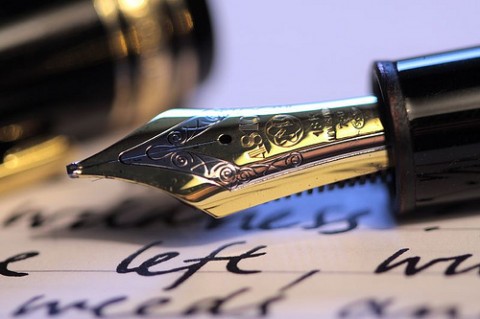
by Dean of Studies Theresa Ammirati
Jazmin Acuña’s well-written and provocative column, “Embracing Doubt in the Ground Zero Debate,” points out that “it takes courage to sit down and look despair in the face, but it is what we need.” I applaud her engagement in the argument and her willingness to speak out honestly and compellingly, but I must also ask, why, exactly, should we summon up our courage to deal with despair? I fear that if the answer is in her last line, “Let despair take over,” that courage is wasted. Despair is what allows us to say, “What happened to Tyler Clementi was horrific, but there is nothing that can be done about it, so all we can do is be sad.” Despair says, “Ignorance is more prevalent than good sense, but we can’t fix ignorance no matter how hard we try, so why bother?” Despair allows us to make only very small gestures, or none at all, toward changing the world into a place we want to inhabit. It says that the very best we can do is not add to the sum of human misery. It does not allow the possibility of our adding any joy. Despair, in short, is the enemy not only of hope but of change.
I don’t suggest for a moment that despair isn’t tempting or even that it is always inappropriate – sometimes the only rational choice for thinking people is to throw up their hands and say, “it’s all too much.” But believing that there is nothing to be hopeful about ensures that there will be nothing to be hopeful about. The column suggests that this generation needs to be told that it is “a lost generation of Blackberry-driven, pathologically self-centered individuals with an acute deficit of empathy.” This judgment may be right, but I think that the article itself is proof to the contrary. We are all, at times, self-centered. We frequently lack empathy in our dealings with others. Despair says that this is not only the real state of affairs but that there is no hope that it will ever be different. But this column, no matter how it concludes, is actually working against despair, calling for self-examination, for discussion about how we live and what we do in the face of terrible events and overwhelming cruelty to our fellow humans. If we choose to despair, why should we bother?
I have lived too many years to accept uncritically Anne Frank’s belief that “people really are good at heart,” or to think that at this moment the roller coaster we all seem to be riding is on its upward trajectory. But despair ensures that the only direction for us all is down. This column rightly argues that “to be doubtful is to be humble and open to the possibility that the real enemy might well be within [us] rather than outside of [us].” But what is the point of being open to such knowledge if despair tells us that the only proper response is to say, “yes, you’re right,” shrug our shoulders and walk away? I suggest that we be angry. I suggest that we refuse to accept that there is nothing to be done. Any student of history understands that societies always appear to take one step backward for every two steps forward, that alleviating disease, ending wars, helping people to gain human rights and fighting against hatred and ignorance are all part of an unending battle. But in the brief time we all have between womb and tomb, it may be the willingness to fight that battle that is the greatest evidence of our humanity. I think Ms. Acuna understands this. She suggests that it is time for us to be frank in our discussions of difference, presumably so that we can help to avoid the “indelible harm” caused by our society’s inability to tolerate or, even more, embrace difference. I suspect that she doesn’t really believe that we should embrace despair. If we do, the conversation has no point. •










I also thought the article was well-written, but otherwise was shallow, misleading and cruel in its intent.
The article’s logic, use of agenda-driven sources were faulty. D’Souza is a well known Muslim apologist who makes a handsome living doing so.
I found her criticism of America both shallow and offensive. Of course America has faults – plenty of them. But despite all its faults people, like the student who wrote the article, still come here presumably for what America offers. In particular I have become increasingly frustrated with Muslims criticizing America while ignoring the barbarity, repression, magical thinking of ALL Islamic countries. It begs the question: Why didn’t she go to the University of Mecca instead? Or, possibly, the University of Khartoum?
Meanwhile, as a professor, your praise of her article reminds me of what is described in the following article:
http://www.spme.net/cgi-bin/articles.cgi?ID=6889